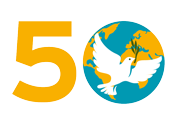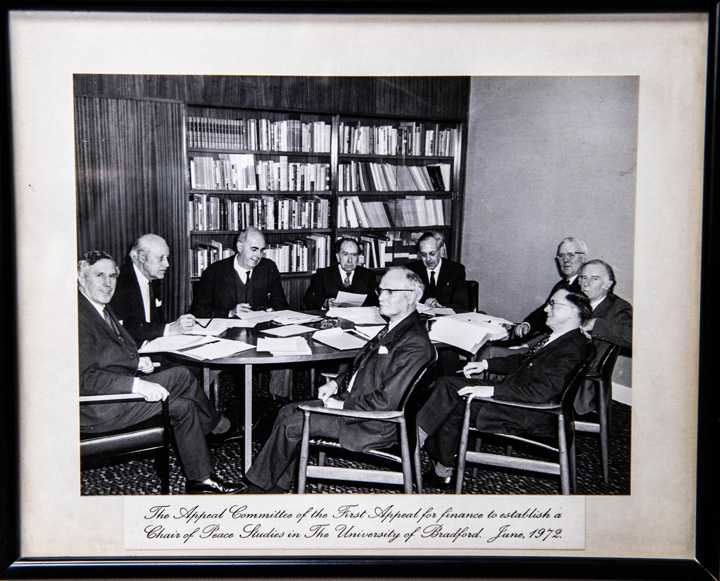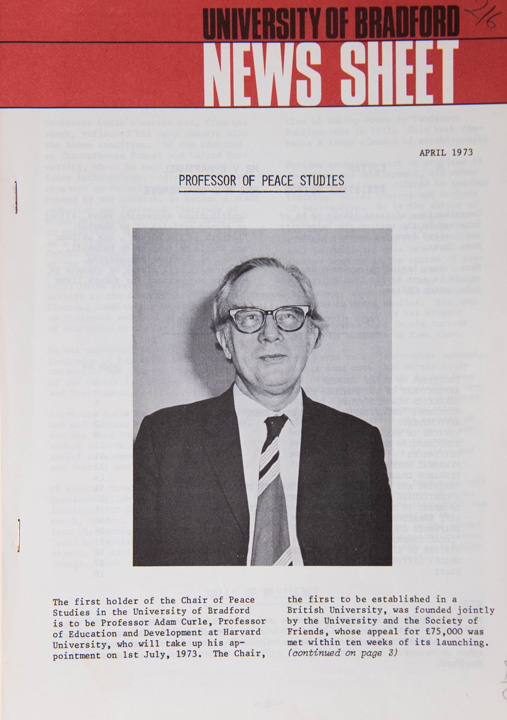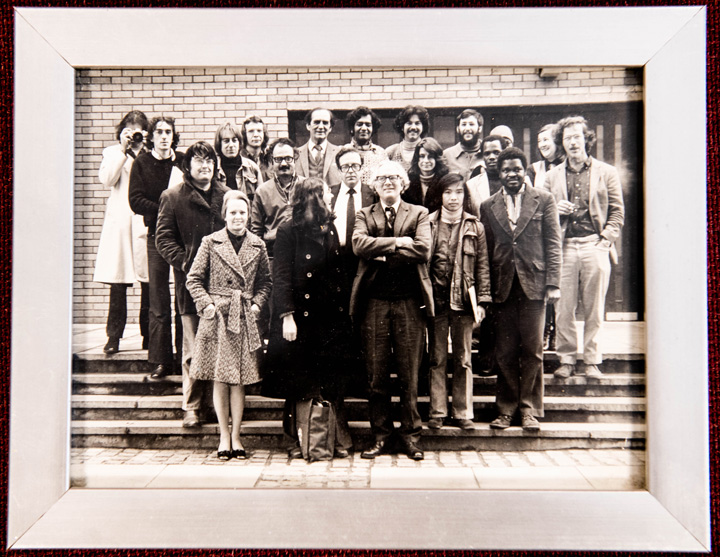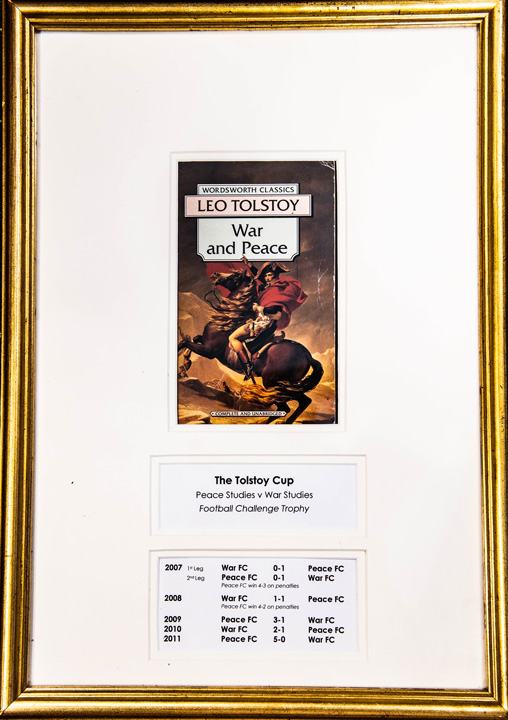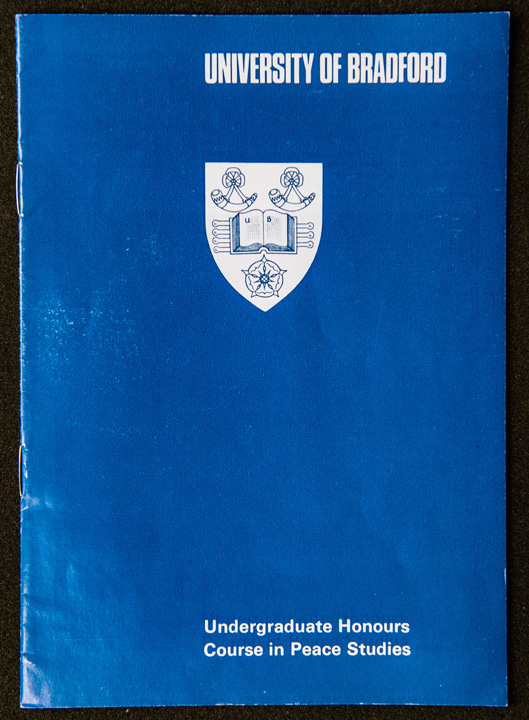Celebrating 50 years of Peace Studies
The Golden Jubilee Conference is the culmination of our celebrations for the 50th anniversary of Peace Studies at Bradford. The conference will take place on the University of Bradford campus on June 6-9.
The conference aims to:
- Celebrate the achievements and significance of Peace Studies at the University of Bradford on its 50th anniversary, together with our alumni, established partners and network of Peace Studies
- To give us a chance to reflect on key challenges and priorities for major contemporary and emerging issues for Peace Studies researchers and advocates.
As you can see from the schedule, we have designed our days together to include a mix of plenary sessions, panels, workshops, exhibitions and social events to allow for a good balance between the aims of celebration, networking and well-informed reflections on major contemporary/ emerging issues for the study of Peace.
Please consult the provisional schedule and register by May 20th. If you have any questions, please contact psidconference@bradford.ac.uk.
Golden Jubilee Conference
Thursday 6th June to Sunday 9th June 2024
In 1973, the University of Bradford launched the UK's first ever Peace Studies school. Today, it is a leading centre for conflict resolution and international development, known and admired around the world.
The idea for a School of Peace Studies in the Yorkshire city first came about in 1964, two years before the Bradford Institute of Technology became a university. Principal Dr Ted Edwards and Vice Principal Robert McKinlay pledged to found such a school when the time was right to fulfil their commitment to the "application of knowledge to human welfare."
By the end of the decade, The Society of Friends - known as Quakers - approached a number of UK universities with the same idea. Bradford, home of celebrated social commentator J.B. Priestley, who had sowed the seeds for the Campaign for Nuclear Disarmament, stepped forward. Within 10 weeks of a public appeal being launched in 1971, the Quakers had raised £75,000, including contributions from the likes of former Prime Minister Harold Wilson, Chancellor of the University from 1966 to 1985, American violinist Yehudi Menuhin and British composer Benjamin Britten. The University matched the figure.
Professor Adam Curle, an eminent British peace academic, was appointed as the inaugural Chair. His vision was to train students at all levels, from diploma to PhD, who would go on to work in community or race relations, join international agencies like the UN or Oxfam, or carve out careers in law or education.

On the left, Robert McKinlay, Pro-Vice Chancellor of the University, and on the right, a tapestry created by the Quakers to mark the founding of the School.
Over the last half century, academics have lent their expertise to organisations including the UK Government, United Nations Peacekeeping and NATO, and worked alongside peacekeepers in conflicts including Israel-Palestine, the Balkan Wars and the Iraq War.
Today, the Department of Peace Studies and International Development runs eight Master's programmes as well as the BA International Relations, Politics and Security Studies.
Professor Anand, Head of the Department, said: “It has been a success against all the odds - being located far out of the capital city, in a place that is usually associated with successful Victorian era female authors of Haworth and industrial philanthropists such as Sir Titus Salt, but no ready connection with wars or peace deals".
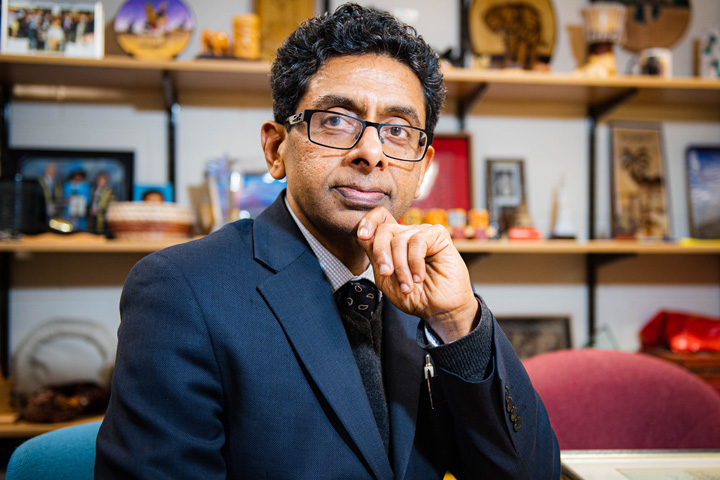
Professor Anand, Head of the Department for the Centre of Peace Studies and International Development.
I think that is the uniqueness of this Department. It seems to shout out that if you have a will, it is possible to make a difference.
Professor Anand, Head of the Department of Peace Studies
Timeline
1964: Bradford Institute of Technology Principal Dr Ted Edwards and Vice Principal Robert McKinlay vow to found a Peace Studies department at some point in the future.
1966: Bradford Institute of Technology becomes University of Bradford.
1969: Society of Friends - known as Quakers - decide to part-fund a Peace Studies centre at a UK university.
1971: Quakers launch fundraising appeal to raise £75,000. They hit their target in 10 weeks.
1973: Peace Studies launches at the University of Bradford with Professor Adam Curle as inaugural Chair.
1974: The first students arrive.
1995: The first Tolstoy Cup football match between Peace Studies and King's College London's War Studies is played in Bradford. Peace Studies wins 15-0.
1998: Celebrations for the Silver Anniversary include a reception at the House of Lords with then Foreign Secretary, Robin Cook.
2002: Bradford becomes founding member of the Rotary Peace Centres network.
2016: The Bradford Centre for International Development merges with Peace Studies to create the Department of Peace Studies and International Development.
Gallery
I, too, have a dream. I dream of a world in which we are not separated from each other by fear, suspicion, prejudice or hatred; in which we are free and equal, considerate and loving with each other.
Adam Curle, Inaugural Chair
Browse our courses
Learn more about the courses we offer in the Department of Peace Studies and International Development


